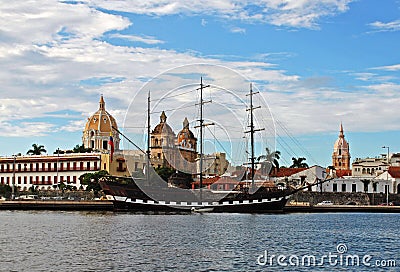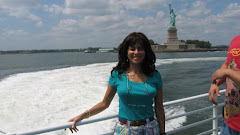Cartagena, Former Jewel of the Spanish Crown
I took my first visit today to the country of Columbia by way of the port of Cartagena, considered to be the tourism capital of the country. My visit was of Cartagena’s charming, well-preserved old town, declared a UESCO World Heritage site in 1987. With its perfectly preserved colonial era mansions, churches, ornate balconies, 16thcentury plazas, and 300-year old fortress—the largest constructed in the Americas---a tour here acquaints you with the history of the Spanish colonial era with its thrust for wealth power, and domination of this hemisphere.
From mid-1500s-1700s, Cartagena was one of the most powerful cities in the Americas, larger than NYC, and storage vault for the Spanish crown’s treasures as a starting point on two annual flotillas to Spain carrying precious cargo including gold from Peru, emeralds from Columbia, silver from Mexico, and more. As a result, it became a target of Privateers (pirates) from England, Netherlands, and France, giving rise to careers of such famous pirates as Francis Drake (who inspired generations of pirates).
We entered the city through the iconic Torre del Reloj, which leads to the Plaza des Coches, which served as one of only two slave trading posts in the Spanish colonies in The Americas. I was saddened and moved as I contemplated the vast wealth amassed and the dehumanization here on the backs of the men and women dragged here in chains and traded here like cattle. I shifted gears mentally in order to enjoy the rest of the walking tour.
Vendors displayed handicrafts and jewelry spread on blankets, in several plazas and along some of the narrow paths. Women of African descent, dressed in brightly colored traditional regalia, posed for photos, charging $1, for the privilege. We peeked inside several quaint hotel courtyards and stopped at the Iglesia Claustro Santa Domingo, Plaza Santo Domingo (where the famous Botero reclining dame sculpture is on display), Plaza de la Inquision (where heretics where tortured), toured inside the restored Catedral, and stopped to view the Castillo de San Felipe de Barejas.
Our final stop was La Bovedas, former army barracks that have been converted into 23 shops. I purchased Botero replicas and chivas (colorful buses) miniatures.















.jpg)
.jpg)




No comments:
Post a Comment